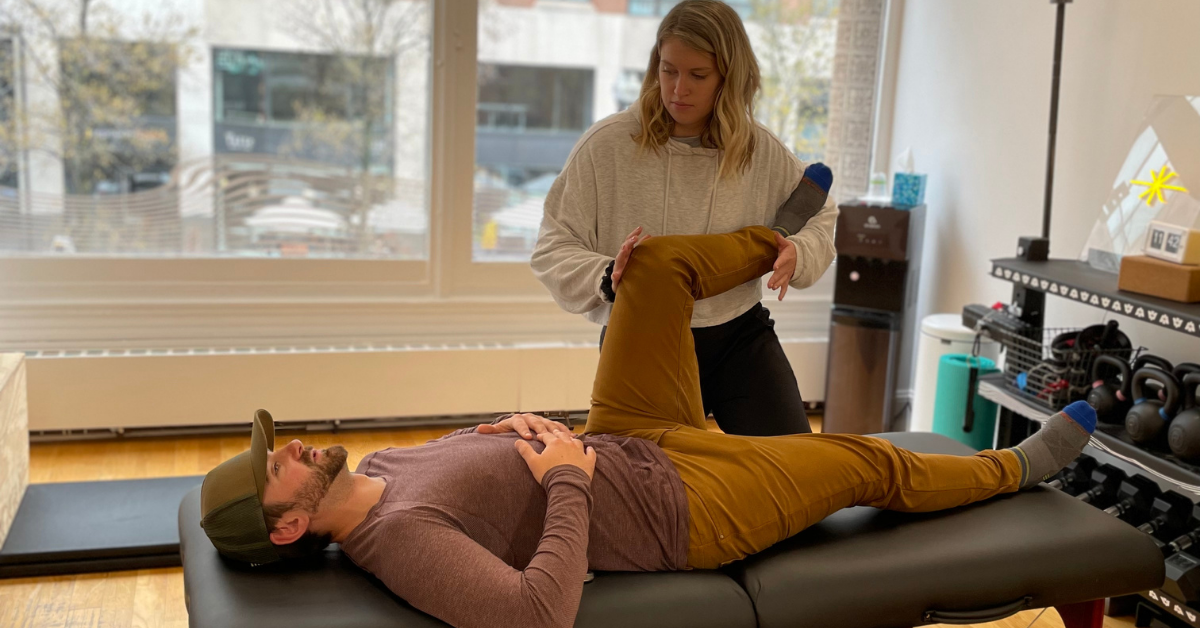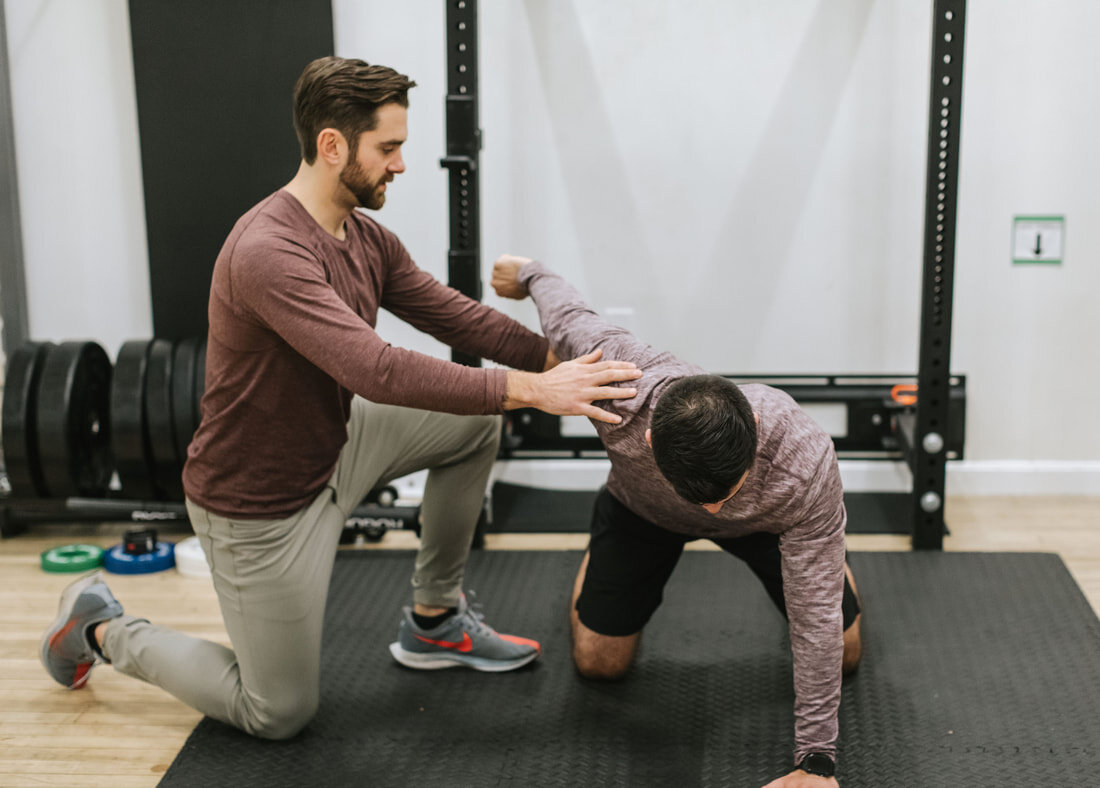3 Things to Do For a Pinchy Hip

3 Things to Do For a Pinchy Hip
If you’re reading this, chances are you suffer from a pinchy hip.
Maybe it’s because you sit at a desk all day long. Or it hurts when you squat and limits your workouts. Even with something as simple as getting out of the car, you feel the front of your hip pinch. Everyone has different symptoms, but at the end of the day are all dealing with the same thing.
If you’re someone who’s dealt with chronic hip pain their whole life or looking to catch their hip pain earlier so it doesn’t become a problem in the future, then download the Fix Your Hip at home eBook!
Luckily for you, our Boston Physical Therapist have the solution! As always, we have to note that if you’re in chronic pain, always seek out a provider in-person to get a thorough evaluation. These are home tests are great and will really help, but there’s nothing like an in-person evaluation.
What is the ‘pinch’?
If you have a pinchy hip, you may have gone to the doctor and they said that you have a ‘deformation’, ‘degeneration’, or ‘dysfunction’ (all D’s huh) of the hip. Those are big buzzwords and sound way worse than they actually are, so we don’t use them here. Really what’s going on is the space inside your ball and socket joint has got smaller, and whenever you move up or to the side, it hurts. Luckily, a majority of the time it’s fixable!
A Physical Therapy trick to see what’s actually going on:
If you go through a Hip Flexion Evaluation and you get a pinch in the front of your hip, one of the ways we can test to see what’s causing it is by trying to activate the core while doing this test.
Try this - lay on your back with your head up against the wall. From here, reach your hands back and put your palms flush to the wall. Then, drive both hands into the wall (should feel core turn on) and bring your knee to your chest. Still feel the pinch?
If you don’t, this means that your core activation isn’t firing properly, and that could be the cause of your hip pinch!
So, let’s get into the nitty-gritty of what exactly to do when you feel a hip pinch. As always, if you have pretty severe pain in your hip, it’s always best to see a Physical Therapist in person.
#1 Improve Hip Internal Rotation
Hip internal rotation is the required motion to make sure your hip can flex and not pinch. The best way to improve hip internal rotation is to both, and in this order, improve its passive range of motion and then its active range of motion. If you test your hip range of motion in the fix your hip at home eBook and find that you have no range of motion, you need to get in-person to a quality provider and get it evaluated. Don’t let the internet fix this.
#2 Improve Hip Flexion Strength
When strengthening the lower body, we always talk about exercises like squats and deadlifts — but none of those actually target strengthening hip flexion. Hip flexion is how well you can move the knee towards your chest; without strength in this motion, we can’t expect to have mobile hips. Our hip eBook dives into one of the best hip flexion strength exercises you can do — give it a look!
#3 Improve Breathing
Improving your breathing is not only good for moving your hips but just good in general. Do something for me — can you take an inhale through your nose for 4s, pause, then exhale through your mouth for 6s for a total of 5 breaths? If you can’t, you’re overworking and chances are your whole body is tight because of it. Improving the economy of your breath will help relax the pelvis and therefore give you better hip range of motion. Here’s one of our favorite breathing exercises that we highlighted in a past blog about curing your low back pain.
At our Boston location, all of our Physical Therapists see tight hips on a daily basis. They provide manual therapy, dry needling, and corrective exercise to get your hips out of tightnessness and pain, and back to your best self!
Want to give fixing your hips at home a shot? Download our FREE eBook on how to fix your hips at home!
Ready to take everything to the next level? Go ahead and book a FREE 15-minute phone call to discuss your tight hips, how they’re affecting your lifestyle, and what you need to do in order to change that.


